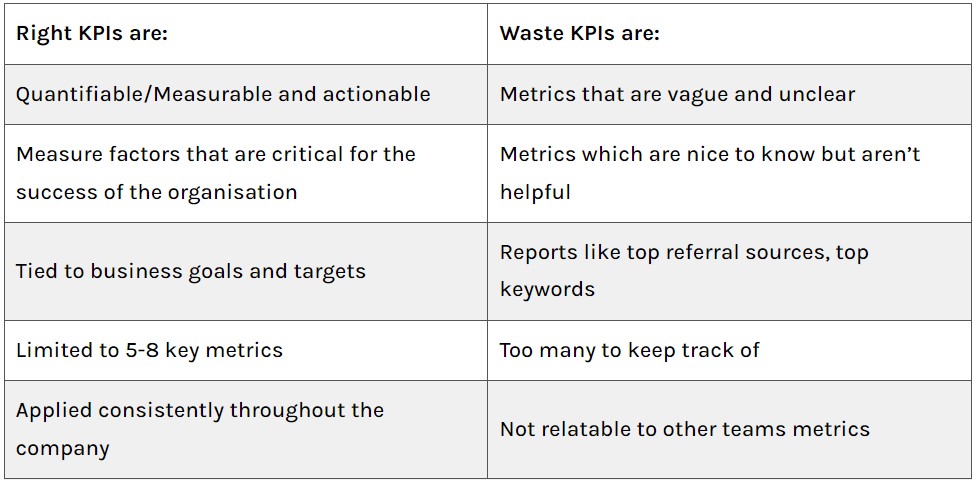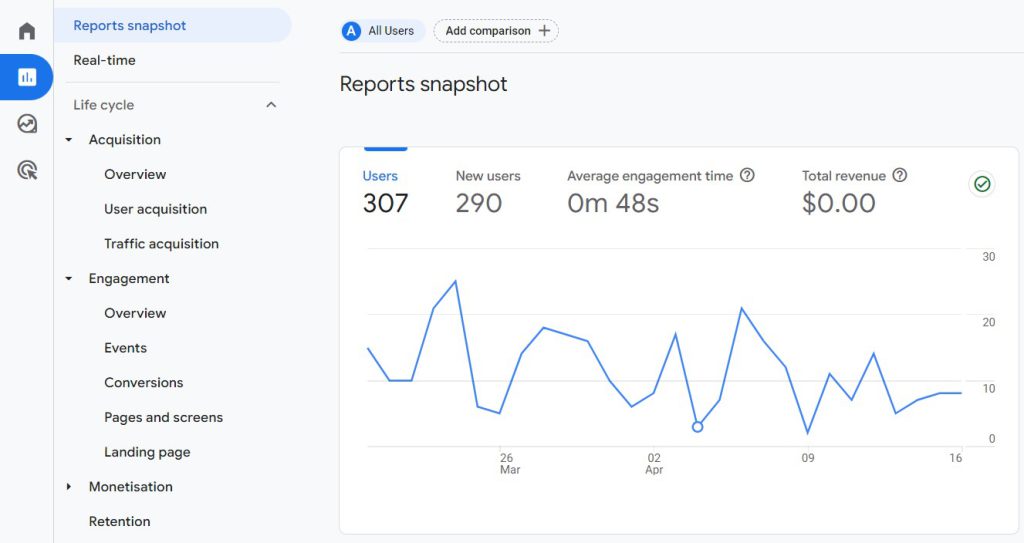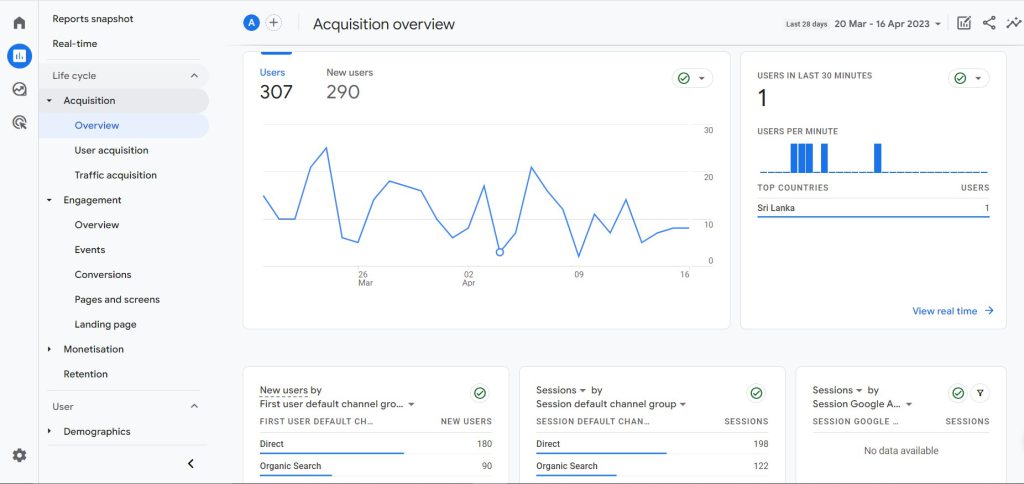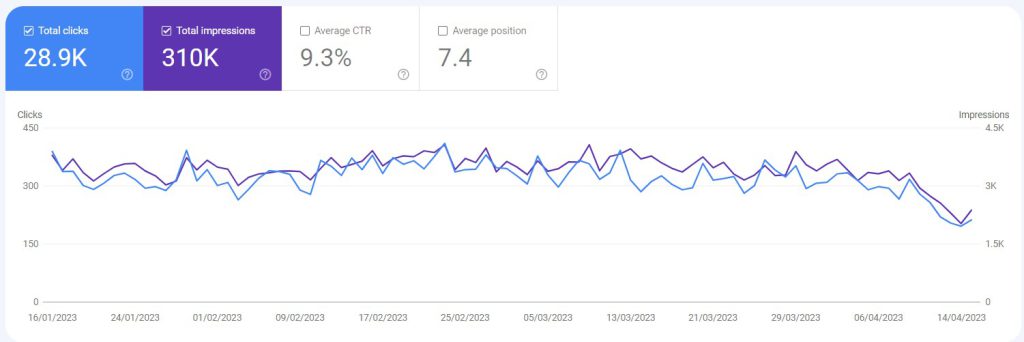The Essential SEO KPI Metrics For B2B Marketing
As a B2B marketer, understanding the SEO KPI metrics is essential for efficiently tracking and analyzing your campaigns' performance.
Knowing which Key Performance Indicator (KPI) metrics to track for SEO optimization can help you boost search visibility and reach potential business clients.
This blog will cover everything you need to know about selecting the right business-to-business KPI metrics for SEO, the importance of SEO KPIs, and how they can benefit your business's presence.
What is Search Engine Optimization?
Before we dive into the KPIs based on B2B, we need to learn about SEO and its role in business-to-business growth.
Search Engine Optimization is the process of improving the search visibility of a website or webpage in search engine results. The benefit of SEO is twofold: To generate helpful content that matches the users' online search queries, and create content that search engines recognize as expertise, authoritative, and trustworthy.
The best way to measure SEO performance is through organic traffic and the website rank on search engine results. With the help of the correct SEO metrics created through analytics and Google search console, you can plan, and optimize your keyword targeting.
Why do SEO KPI Metrics matter for B2B marketing?
SEO KPI metrics is an essential tool for any B2B marketers to measure and analyze their campaign performance. These indicators provide invaluable insights that can be used to optimize campaigns, drive higher ROI, and ensure long-term success.
They provide a window into how users interact with your website and how effective your marketing efforts are. Moreover, SEO KPI metrics can also be used to compare your performance against competitors, measure progress, and determine areas for improvement.
Types of SEO KPIs to Track for Business-to-Business.
Types of KPIs to Track for B2B Websites include organic search metrics, such as organic website traffic, organic search impressions, click-through rate (CTR), and conversion rate.
Additionally, it is important to track website performance indicators, such as page loading speed, bounce rate, and time spent on pages.
These metrics can provide a comprehensive view of the effectiveness of your website, as well as how it is performing compared to competitors.
Read More: Top B2B Marketing Statistics For 2023
How to choose the right SEO KPIs to track?
To determine the SEO KPI metrics you need to track for your B2B website, you must be clear on the website goals and objectives. These can range from brand awareness, lead generation, and content marketing to nurturing an audience, etc.
Setting the relevant goals and SMART objectives of your website will make it easier for you to choose the right SEO KPIs and reach with other businesses.


1. Average Engagement Time
Average Engagement Time is a metric on Google Analytics 4 (GA4) that measures the average amount of time a user spends on your website. This allows you to get an insight into how engaging your website is to users, allowing you to identify areas that need improvement in order to maximize user engagement.
When you start tracking this metric, you can learn how interested users are in the content on your website which as a result can be used to optimize and strategize content marketing.
In Google Analytics, you find this under Reports > Reports Snapshot or under Reports > Engagement Overview.


2. User Acquisition
The next key metric for SEO you must track is User Acquisition. As you know, user acquisition involves the process of actively attracting new website visitors. This metric can help you determine the number of users who visited the website by the channels, sources, and devices.
With user acquisition, it is easier to track the impact of your content marketing, link-building, and paid advertising efforts. Moreover, with the data, you can analyze the number of new website visitors and leads generated and where improvements are required.


3. Conversion Rate
In B2B marketing, it is vital to know whether you're generating leads or not.
And the success of your strategies depends on this core component. That is why you need to track conversions.
So conversion rate on Google Analytics measures the percentage of website visitors who complete a desired action. These can be sign-ups for an account, purchase of a product or service, downloads, form submissions, or subscribing to a newsletter.
With conversion rate, you will effectively drive user visits and improve conversion rates, leading to higher ROI from their marketing efforts. In Google Analytics 4, you can create an event under events and mark them as a conversion.
4. Click-Through Rate(CTR)
Click-Through Rate (CTR) is a metric that measures how effective online advertising campaigns are in terms of getting users to click through and visit the advertiser's website. Organic CTR shows the ratio of clicks to impressions, or how often someone clicks on an ad after seeing it. It is an important metric for conversion tracking and site visitors.
CTR is one of the important SEO KPIs to track organic sessions as well as the performance of the site on search results.
5. New And Returning Users
Another SEO KPI you need to prioritize is new and returning users. These are website visitors who visit your website for the first time or have visited before. By tracking these, you can compare the number of new visitors and returning visitors. Based on the data, you can make data-driven decisions to rev up user engagement, loyalty, and customer retention.
6. Organic Search
Organic Search Visits indicate the number of website visitors who have arrived on the website through organic search engine results. This means, they found your website on a Search Engine Results Page. (SERP).
For more accuracy, you can track the organic search data with the Google Search Console. By tracking organic search visits, B2B marketers can identify the top-ranking pages, number of clicks, impressions, average position, etc. With this data, you can analyze the performance of your B2B website, content, and search queries.


7. Page Impressions
Page impressions are another SEO KPI to measure the search visibility and the business presence in organic search results.
Page Impressions denote the number of times a page has been viewed or loaded by visitors on search results. This metric can help in analyzing data such as branded keywords, organic queries that drive traffic to the website.
Moreover, the reach of content campaigns and other marketing efforts, in terms of how many users are viewing the content.
Higher page impressions mean a higher possibility for the search demand among your target audience.
Key takeaways
B2B marketers need to track a variety of SEO KPI metrics in order to optimize their campaigns and maximize ROI. These include Conversion Rate, Click-Through Rate (CTR), New and Returning Users, Organic Search, Page Impressions, etc.
By tracking these metrics, B2B marketers can learn the progress of the website's performance, where it ranks, and what needs to be optimized.
With these metrics, you will be better equipped to measure the success of your SEO strategy.




